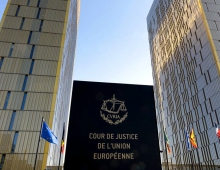
EU To Defend Open Internet at Dubai Conference
European Union member states will declare their opposition to prevent a move by Russia and countries in Africa to impose a levy on internet traffic and make it easier to track users' activities.
The 193 Member countries of the International Telecommunications Union (ITU) will meet in Dubai from 3rd to 14th December 2012 to review the International Telecommunications Regulations (ITR) Treaty the first time since 1988.
The EU is opposed to plans to regulate the internet, including proposals from Africa, Asia and the Middle East that governments should be able to trace web traffic and introduce a tax on companies such as Google and Yahoo if they deliver content to networks abroad.
The United States is also opposed to any new restrictions, which it fears will limit innovation and commerce.
EU believes that the success of the 1988 ITR Treaty lay in the fact that it was primarily a set of high level principles which facilitated international telecommunications rather than detailed regulations. "This meant that the subsequent explosion of innovation in services and communication technologies, such as those associated with the internet, was not hampered by detailed international rules and regulations, " the EU said.
Some non-EU countries have tabled proposals for a significant increase in the scope of the Treaty and the regulatory burden on operators, including internet service providers.
Leaked drafts of a proposal from Russia show it would like to have more say over internet traffic entering its networks.
"The EU believes that there is no justification for such proposals and is concerned about the potentially negative impact on innovation and costs, both for operator and end-users," the European Commission says.
The EU's common position is not to support any proposals that may affect EU common rules or alter their scope, or introduce obligations on operators which go beyond those already provided for under these rules.
The EU will support proposals that "seek to ensure that the revised Treaty remains high level, strategic and technology neutral and to oppose proposals to make ITU recommendations binding." In addition, the EU will ensure the ITR revision process does not lead to an increase in the scope of the current ITR Treaty and will support the privacy and personal data protection in relation to personal data and communications.
The EU is opposed to plans to regulate the internet, including proposals from Africa, Asia and the Middle East that governments should be able to trace web traffic and introduce a tax on companies such as Google and Yahoo if they deliver content to networks abroad.
The United States is also opposed to any new restrictions, which it fears will limit innovation and commerce.
EU believes that the success of the 1988 ITR Treaty lay in the fact that it was primarily a set of high level principles which facilitated international telecommunications rather than detailed regulations. "This meant that the subsequent explosion of innovation in services and communication technologies, such as those associated with the internet, was not hampered by detailed international rules and regulations, " the EU said.
Some non-EU countries have tabled proposals for a significant increase in the scope of the Treaty and the regulatory burden on operators, including internet service providers.
Leaked drafts of a proposal from Russia show it would like to have more say over internet traffic entering its networks.
"The EU believes that there is no justification for such proposals and is concerned about the potentially negative impact on innovation and costs, both for operator and end-users," the European Commission says.
The EU's common position is not to support any proposals that may affect EU common rules or alter their scope, or introduce obligations on operators which go beyond those already provided for under these rules.
The EU will support proposals that "seek to ensure that the revised Treaty remains high level, strategic and technology neutral and to oppose proposals to make ITU recommendations binding." In addition, the EU will ensure the ITR revision process does not lead to an increase in the scope of the current ITR Treaty and will support the privacy and personal data protection in relation to personal data and communications.





















